
Ines
Sombra
Vice President of Engineering
Fastly
The conference programming committee has designed this year's content to cover the following themes:
- Skills for leading in a downturn
- Doing more with less
- Preparation techniques for change
- Crafting agile and achievable workflows
Welcome to LeadDev New York 2024
A welcome to LeadDev West Coast 2023 from the host Inés Sombra.
Your host Inés Sombra welcomes you to the day, run through our code of conduct and let you know what we've got coming up.

Ines Sombra is the Vice President of Engineering at Fastly, where she spends her time helping the Web go faster. Ines holds an M.S. in Computology with an emphasis on Cheesy 80’s Rock Ballads. She has a fondness for steak, fernet, and a pug named Gordo. In a previous life she was a Data Engineer.
View Ines's LeadDev articles and talks
Tara Ellis calls out what the folks in the room are thinking, looking at what it means to lead in a post-boom environment, and thinking about how we can create a sense of stability for ourselves and our teams.
Today's tech landscape has undergone a remarkable metamorphosis over the past year, and it's a far cry from the world we knew even before the pandemic hit.
For both emerging engineering leaders and seasoned veterans, the relentless boom in the tech industry has been the status quo. However, this unceasing momentum is now giving way to seismic shifts, promising to reshape the entire industry. But on a more personal level, it also means that a lot of the skills you’ve been learning don’t quite turn the lock as smoothly as they used to.
Don't get me wrong; the skills we've honed over the years are still incredibly valuable. However, to wield them effectively in today's evolving environment, we are going to need to adapt what we’ve learned for this new setting. In this talk, we’ll be calling out what the folks in the room are thinking, looking at what it means to lead in a post-boom environment, and thinking about how we can create a sense of stability for ourselves and our teams.

Tara Ellis is an avid tinkerer and has been since the early days of the web. As a critical and creative thinker, she is a relentless problem-solver skilled at applying critical thinking, analysis, and technical skills. Tara is a strong believer in “Peopleware” and because of that has a keen understanding of building and managing engineering teams that deliver. Tara currently has the privilege of leading a team of engineers at Netflix where she has focused on continuously improving the sign-up ato bring in the next 100 million Netflix members globally. Prior to joining Netflix, she lead engineering teams at Disney; if you’ve been to Disneyland or Disneyworld in the last decade, you’ve interacted with some of her teams’ software. She honed her engineering skills in the fast-paced, ever-changing environment at Amazon, learning lessons she still uses today.
View Tara's LeadDev articles and talks
Watch Liz Hustedt to feel empowered to make an action plan to take back home, and you will have compassion for yourself if not everything goes to plan.
A lot of us fantasize that when we attend conferences, we'll manage to absorb all the information we need to, and magically be able to apply it to our organizations without much friction.
The reality is usually more complicated than that. In this session, I'll describe the archetypes of conference speakers (or our teachers, in this scenario), the archetypes of attendees (our learners here), and common pitfalls when integrating knowledge from a conference. At the end of this talk, you will feel empowered to make an action plan to take back home, and you will have compassion for yourself if not everything goes to plan.
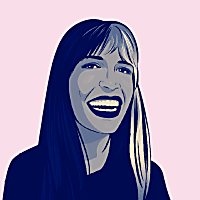
Liz Hustedt fell in love with computers as soon as her hands could reach the keyboard. Her first foray into tech was a false-start, as she navigated discriminatory behavior during college. Switching majors, Liz graduated with her RN-BSN and worked as a Neuro ICU nurse for 5 years, before finally switching back into software development and fulfilling her long-time dream. She has worked in big corps, seed-stage start-ups, and mid-sized companies. Currently, she finds herself at ActBlue Technical Services as an Engineering Manager.
View Liz's LeadDev articles and talks
Evan Morikawa gives you a behind the scenes look at how we scaled ChatGPT and the OpenAI APIs. A story about staying nimble enough to release new capabilities and to respond quickly to a rapidly changing industry.
This is a behind the scenes look at how we scaled ChatGPT and the OpenAI APIs.
Scaling teams and infrastructure is hard. It's even harder when there are not enough graphics processing units (GPUs) left in the world to serve demand. This story is also about staying nimble enough to release new capabilities and respond quickly to a rapidly changing industry.
You will leave this talk with knowledge on:

Evan manages Applied Platform Engineering — The engineering team responsible for scaling the models that power ChatGPT, DALL·E and the APIs. He does not have an ML PhD. Before OpenAI he built Electron email clients, communication APIs, and engineering teams at Nylas. He’s an Olin College alum.
View Evan's LeadDev articles and talks
Enjoy a break and grab yourself a coffee and a snack or get involved with table talks, connect with suppliers and more.
Hywel Carver talks focuses on the shape of engineering teams and how they work - including how they have changed over time with the advent of Agile and DevOps - and suggest how this will change as AI-generated code becomes mainstream.
We will begin by looking at both the exciting and inspirational potential of recent breakthroughs in AI, and the dangers inherent in using AI assistants in our development process. I'll examine the productivity, pace and product potential of teams who incorporate AI into their process, and highlight some of the ethical, security and legal exposure that companies risk when they incorporate AI-generated code.
The focus of the talk will be on the shape of engineering teams and how they work - including how they have changed over time with the advent of Agile and DevOps - and suggest how this will change as AI-generated code becomes mainstream.
At this point, I will highlight a risk that gets very little airtime - the risk to the quality of engineering talent if their problem-solving (and therefore learning) is neglected, and the holes in skills that will cause and the risks that arise from it.
The talk will then focus on the shifts that need to take place in the structure and skills of engineers to embrace this new world: explaining the role of a junior, how progression will work in the future, and the intentionality required by organisations to protect themselves from - and mitigate - the risks.

Hywel wrote his first program in C aged 9. After graduating with an MEng from Cambridge, he dropped out of his PhD programme to co-found his first start-up. Today, Hywel is Skiller Whale’s Co-Founder and CEO. He runs a dinner club for CTOs, a podcast for tech leaders called 'Primarily Context-Based', and is designing and building his own 8-bit computer for playing Pong. In his 12+ year career, he’s been building and scaling start-ups. With Skiller Whale, he is drawing on that experience to solve the biggest problem he faced as a CTO: learning for engineering teams.
View Hywel's LeadDev articles and talks

Prashant Verma summarizes his experiences, tips, tools, and techniques I developed along the way for personal development, team development, and process management.
Engineering management is a people-first job role that requires you to quickly establish rapport with your team, peers, and stakeholders, alongside leading the company to successful outcomes.
In a role that relies heavily on interpersonal interactions, onboarding to a new team in a completely remote work environment is a challenge. What’s more, the techniques that people leaders have historically used in in-office roles to build relationships and onboard are no longer as effective in a remote work environment.
Using my personal experience navigating onboarding remotely, building connections, collaborating across time zones, and implementing processes, I’ll share some tips, tools, and techniques on how you can show up for yourself and your team as an engineering manager.
You will leave this talk with knowledge on:

View Prashant's LeadDev articles and talks

Plum Ertz talks about how, despite the growing discussion in the industry about digital accessibility, putting those debates into action can still be challenging in today's world of “doing more with less”.
Despite the growing discussion in the industry about digital accessibility, putting those debates into action can still be challenging in today's world of “doing more with less”.
With constant high pressure to quickly ship new innovations, especially in the startup space, accessibility unfortunately doesn't always make the cut. However, everyone can do their part to lead organizations toward turning accessibility from a “more” into a “must” baseline requirement of any minimum viable product (MVP).
In this talk, we dive into how to make a case for accessibility in a resource-constrained environment. We’ll also look into low-overhead, high-impact practices you can introduce to integrate accessibility into the day-to-day of organizations at any scale or scope.
You will leave this talk with knowledge on:

Plum Ertz is a software engineer, baker of noms, and casual economist, with a degree in one of those things. Their main areas of expertise are on the front end, with a focus on accessibility and web standards. They have applied those skills as employee number 8 and number 800 in the marketing, media, and fintech spaces, building everything from interactive multimedia experiences at live events to quizzes about sexy fruits. Plum is presently bolstering a strong culture of accessibility in the direct-to-patient healthcare space as a Senior Director, Engineering at Ro.
View Plum's LeadDev articles and talks

Lorenzo Saino evaluates how the software engineering skills of job candidates often involves live coding sessions or take-home coding assignments, but both methods have major limitations.
Evaluating the software engineering skills of job candidates often involves live coding sessions or take-home coding assignments, but both methods have major limitations.
Live coding sessions don't reflect realistic work conditions. They only allow for the evaluation of relatively short code snippets and are susceptible to candidates’ emotional responses during the interview. Take-home assignments, on the other hand, are substantially time-consuming for both candidates and interviewers, slowing down the interview process, and leading to candidates abandoning the application process altogether.
Instead, a better approach might be code review assignments, which are less commonly used. However, code review assignments are perfect for evaluating candidates’ performance in a realistic work environment, saving time for both parties and allowing for deeper and more objective evaluation.
You will leave this talk with knowledge on:

Lorenzo Saino is a director of engineering at Fastly, where he leads the team responsible for building the systems that control Fastly network infrastructure. During his tenure at Fastly he built systems solving problems related to load balancing, distributed health checking, routing resilience, traffic engineering and network telemetry. Prior to Fastly, he received a PhD from University College London. His thesis investigated design issues in networked caching systems and he was awarded the Fabrizio Lombardi prize in 2016 for his research. He served on the program committee of O’Reilly Velocity EU in 2017 and 2018 and he is a regular reviewer for journals and conferences in the field of computer networks and systems.
View Lorenzo's LeadDev articles and talks
Luis Vega shares his experience of changing roles from a senior software engineer to a managerial position, the path for building a team to own and revamp unpopular applications and expand the portfolio with new applications, the establishment of a team culture that emphasizes product ownership, unparalleled customer support, and the branding of each application.
As a Senior Software Engineer, I was challenged to change my job and create a brand new team from the ground up.
My task was to recruit and lead a team that would own, revamp, and create applications for Bloomberg's JavaScript framework, which is used by thousands of the company's software engineers every day. The team's goal would be to develop internal tools following the same application development, research, and UX design principles that are used to create Bloomberg's client-facing financial tools. At the time, few internal tools existed and those that did were not embraced by most engineers, including myself.
In this talk, I will share my experience of changing roles from an individual contributor to a managerial role, the path for building a team to own and revamp an existing set of internal applications, as well as expand the portfolio with new applications, establishing a team culture that emphasizes product ownership, unparalleled customer support, and the branding of each application. I will talk about how this helped us build a strong and high-performance team that, today, proudly owns a wide-ranging family of JavaScript/TypeScript applications and leads innovation related to this programming language at Bloomberg.

As a Senior Software Engineer, I was challenged to change my job and create a brand new team from the ground up. My task was to recruit and lead a team that would own, revamp, and create applications for Bloomberg's JavaScript framework, which is used by thousands of the company's software engineers every day. The team's goal would be to develop internal tools following the same application development, research, and UX design principles that are used to create Bloomberg's client-facing financial tools. At the time, few internal tools existed and those that did were not embraced by most engineers, including myself. In this talk, I will share my experience of changing roles from an individual contributor to a managerial role, the path for building a team to own and revamp an existing set of internal applications, as well as expand the portfolio with new applications, establishing a team culture that emphasizes product ownership, unparalleled customer support, and the branding of each application. I will talk about how this helped us build a strong and high-performance team that, today, proudly owns a wide-ranging family of JavaScript/TypeScript applications and leads innovation related to this programming language at Bloomberg.
View Luis's LeadDev articles and talks
Jeff Auriemma talks about how good tools help get a job done faster and better, transforming the entire end-to-end workflow from concept to deployment.
Good tools help get a job done faster and better, transforming the entire end-to-end workflow from concept to deployment.
In this talk, I’ll address some of the challenges product teams face as their understanding of the end user starts to outpace their ability to ship new features (which is healthy) and how GraphQL can make all the difference in this endeavor.
GraphQL is a query language for your API. It allows your designer to explore the full capabilities of your app so they can create the best UX possible. It empowers your engineers to say “three weeks” to your product manager when they would have said “two months” before. These enhancements have a practical impact on the relationships that are the foundation of your cross-functional team’s success.
You will leave this talk with knowledge on:

Jeff Auriemma is a software engineering people person who lives near New York City. Prior to entering the software field Jeff was a professional trombonist and public school teacher for six years. An avid baker and coffee drinker, Jeff spends what little downtime he has with his spouse and three children. Currently Jeff serves as the engineering manager for the open-source client teams at Apollo GraphQL.
View Jeff's LeadDev articles and talks
Amanda Sopkin breaks down some of the big ways in which people are different: communication styles, ways they prefer to receive appreciation, and attitudes towards career progression.
Managing people is complex because people are complex.
As you continue in your career you will meet people with different needs who may challenge how you have practiced your management style so far. In these situations, you will need to learn to adapt to different styles and build your ever-growing runbook of situational wisdom.
In this talk, I will break down some of the big ways in which people are different: communication styles, ways they prefer to receive appreciation, and attitudes toward career progression. Using examples from my own career I’ll share some tips on how to lead different characters in your team.
You will leave this talk with:

Amanda is a San Francisco transplant from Denver, Colorado with a great love for coffee. She is a software engineer for BuildingConnected, which is a startup focused on connecting businesses in the preconstruction industry. She previously worked on the rentals team at Zillow. In her spare time she attends hackathons as a coach for Major League Hacking and does work for climate action advocacy groups. She enjoys writing, speaking, and obsessively reading about sharks.
View Amanda's LeadDev articles and talks
Lena Reinhard will help you change the way you think and operate, and will help you be the leader that your business and your team needs during this time of uncertainty.
After years of high growth, many tech companies realized over the last six months that their projections were too optimistic. As a result, they changed strategy, cut budgets, restructured, and laid off many thousands of employees. Having spent years interviewing, hiring, growing teams, and taking bigger strategic risks, our roles as leaders are now shifting.
In this talk, we‘ll explore:
Leading in a tech downturn is challenging for you and for your teams. Applying the steps outlined in this talk will help you change the way you think and operate, and will help you be the leader that your business and your team needs during this time of uncertainty.
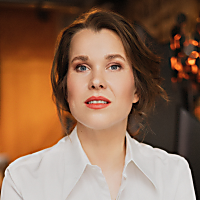
Lena Reinhard has dedicated her career to building successful, high-performing globally distributed engineering organisations, and helping teams thrive in times of high change like hypergrowth. She now offers transformational leadership coaching and consulting for leaders. Previously, Lena served as VP Engineering with CircleCI and Travis CI, as well as a startup co-founder & CEO, and through her cross-functional background and experience, she brings a unique perspective on systems of technology, business, and people.
View Lena's LeadDev articles and talks
Enjoy a break and grab yourself a coffee and a snack or get involved with table talks, connect with suppliers and more.
Shelly Stuart talks hustle culture – where stress, hard work, and long hours are considered the key to success – has long been pervasive in the tech industry.
Hustle culture – where stress, hard work, and long hours are considered the key to success – has long been pervasive in the tech industry.
Even within organizations that have traditionally valued work-life balance, the pressure on teams to “do more with less” and demonstrate efficiency with fewer people may be creating an environment ripe for burnout.
I believe that to create efficient teams, we must dial up our own efforts to recognize burnout, react to it quickly, and create space in our teams to minimize burnout risk.
You will leave this talk with knowledge on how to:

Shelly is an experienced engineering leader who is passionate about building a strong and supportive engineering culture that fosters diversity and growth. She is currently a senior engineering manager at CircleCI.
View Shelly's LeadDev articles and talks
Lexi Galantino discusses how team members who feel passionate about their work are an excellent asset to a team, but over time even passion, met with an endless backlog of important tasks, can slip into burnout.
Team members who feel passionate about their work are an excellent asset to a team, but over time even passion, met with an endless backlog of important tasks, can slip into burnout.
As leaders, we must guide the workload of our teams to fuel employee passion in a sustainable way. Based on my experience in building software for social good I’ll share strategies for organizing a backlog where everything feels urgent and important.
With these tactics, we can minimize the threat of burnout while we sustain high levels of enthusiasm and engagement.
You will leave this talk with knowledge on:

Lexi Galantino is a software engineer and people lead, and for years has been thinking about how tech can promote social good. This has looked different at different times in her career; at one point she was on GitHub’s Trust & Safety team, building tools to discourage harmful content on the social platform, and now, she works for Zipline facilitating drone delivery of medical and other necessary products around the world. She has also been through periods of burnout, and has since thought deeply about how to do good in the world in a sustainable way.
View Lexi's LeadDev articles and talks
Jasmine Oliveira discusses how she worked with her ICs to develop a space where the use of metrics felt less intimidating and more like a valuable tool for growth.
Having your work measured as an individual can be scary - it can stir up feelings of being under a microscope or trigger fears of falling short.
As leaders, we often find that IC metrics get a bad rap due to these very understandable concerns, and may avoid them altogether. However, it’s possible when employed thoughtfully in collaboration with our ICs, metrics can actually enhance our ability to support them and deliver meaningful value together.
In this talk, I’ll discuss how I worked with my ICs to develop a space where the use of metrics felt less intimidating and more like a valuable tool for growth. Join me where I will share how we experimented with our development metrics to gain a new level of transparent conversation around job satisfaction, burnout prevention, self advocacy, and healthier team dynamics.

Jasmine Oliveira thrives on tackling challenges and is passionate about helping others develop their potential. Currently an engineering leader at Jellyfish, Jasmine has both developed and led teams that created impactful tools, enabling organizational leaders to make strategic decisions by gaining a better understanding of their engineering resource allocation and streamlining their software capitalization process. Prior to Jellyfish she contributed to an ML-powered marketing conversion platform and spectroscopy analysis tool at the Harvard-Smithsonian Center for Astrophysics.
View Jasmine's LeadDev articles and talks
Mark Robinson talks about how in recent years, cloud computing has transformed the way businesses store, manage, and analyze their data.
In recent years, cloud computing has transformed the way businesses store, manage, and analyze their data.
But if you’re not careful, cloud computing can also let you lose money faster than any invention in history. Therefore, every company will come to a point when it must begin implementing cost control on cloud computing spending.
In this talk, we will provide a framework for cost savings in the cloud that can be applied to any organization, regardless of size or industry. We will cover the life cycle of cost savings, which includes identifying areas of waste, moving on to optimizing your services, and performing specific actions to optimize cloud infrastructure. We will also discuss the importance of building the right team for cost-saving measures, including determining the necessary skill sets and fostering collaboration and communication.
Whether you're a small startup or a large enterprise, this talk is for anyone who wants to optimize their cloud usage and reduce unnecessary expenses.
You will leave this talk with knowledge on:

Mark is a passionate engineer who loves to solve hard problems. He is an infrastructure engineer at Plaid, a financial data network, where he works at solving scaling issues around deploying software, and keeping the infrastructure running. He specifically enjoys focusing on CICD pipelines, metrics and monitoring, and developer optimization. Mark attended the University of Victoria where he developed a microservices-based submarine control and navigation system, and received a Bachelor of Engineering. His passion for learning new things has led him to work in many business domains over his 15 year career. He has previously developed GIS mapping systems, pension management systems, source code static analysis tooling, and car rental software. In his spare time, Mark rehabilitates under-socialized kittens, renovates his heritage house, and makes Jeff Bezos cry by reducing AWS spend.
View Mark's LeadDev articles and talks
Join us for the networking drinks reception
Welcome to LeadDev New York 2024
A welcome to LeadDev West Coast 2023 from the host Inés Sombra.
Your host Inés Sombra welcomes you to the day, run through our code of conduct and let you know what we've got coming up.

Ines Sombra is the Vice President of Engineering at Fastly, where she spends her time helping the Web go faster. Ines holds an M.S. in Computology with an emphasis on Cheesy 80’s Rock Ballads. She has a fondness for steak, fernet, and a pug named Gordo. In a previous life she was a Data Engineer.
View Ines's LeadDev articles and talks
Melissa DePuydt tells her own story of developing early leadership experience by running toward scrappy work on high-performing engineering teams at The Washington Post and The Atlantic, and I'll share what I’ve learned about the importance of “scale” efforts in growing others and sustaining myself in my work.
The art of good leadership is in making quick, smart decisions. But how do you do that if you don’t have all of the information?
Engineering leaders are constantly fighting fires and rushing between high-priority initiatives. Each day’s new and unending assortment of challenges can easily drive us to feel burned out, and tired of making hard decisions that come with tradeoffs and risks.
Leaders in our industry could learn a thing or two from the way that news editors and journalists tackle breaking news in a fast-paced, hectic newsroom. They spend their careers handling news in real-time, deftly adapting to whatever the day requires. The best ones thrive by cultivating multiple modes of leadership, and managing how they respond in the context of each event.
In this talk, I will share the power of thinking like a journalist and offer a framework to help engineering leaders do so, based on my background as a reporter and editor, and as a leader on high-performing engineering teams at The Washington Post and The Atlantic.
You will leave this talk with knowledge on:

Melissa DePuydt is a senior engineering manager at Medium, where she oversees content distribution and recommendations across platforms. Prior to Medium, Melissa held engineering leadership roles at Upstatement, The Atlantic, and The Washington Post. Melissa cares deeply about empowering engineers to do impactful work that advances both product goals and their individual careers.
View Melissa 's LeadDev articles and talks

Erin Sardo covers what makes a good Release Captain including topics like how to think about rollout stages, rollback strategy planning, environment planning for sustained QA, cross-functional dependencies like help content and customer service traffic, delegation and aggregation.
Major launches need an engineering “Release Captain” independent of a Project Manager.
While a Project Manager can and should be in charge of things like cross-functional coordination, burndown charts, and other gory process details, they are ill-equipped to oversee the launch from an engineering perspective. This talk covers what makes a good Release Captain including topics like:
The Release Captain can’t do everything, but they can aggregate and review what feature owners produce in order to make sure the aggregated launch will be successful.

Erin Sardo is a SF-Bay area based software engineer who loves working cross-functionally on end-user experiences. Currently, she is focused on improving the way all Slack users can easily automate their work. Before starting at Slack in 2021, Erin worked at Google for 10y where she led many of the cross-product efforts in Gmail, Chat, Docs, and Slides. She has managed previously, but is currently enjoying being an individual contributor. When not working, she enjoys spending time with her family and reading sci-fi and fantasy books.
View Erin's LeadDev articles and talks
Sanghamitra Goswami talks about how, in the wake of the ChatGPT craze, the whole world is joining hands to experience this recent AI innovation.
In the wake of the ChatGPT craze, the whole world is joining hands to experience this recent AI innovation.
All of the larger players in today’s current market seem to be in a race to incorporate generative AI features into their products. Microsoft has announced more than 10 billion dollars worth of investments in OpenAI, having integrated ChatGPT into their Power Virtual Agents platform. Companies like Google, Amazon, etc., are even building their own conversational generative artificial intelligence tools.
As a data scientist or a data science leader, staying on top of tech’s latest trends is a must. But, how do you translate this knowledge to the wider org? It can be overwhelming to scale the system architecture and educate wider company leaders in this journey.
In this talk, we’ll discuss how to become a champion for data science, ML, and AI team members and lead your company through a successful journey in today's LLM and AI landscape.
You will leave this talk with knowledge on:

Sanghamitra Goswami is a dynamic leader with a proven track record of machine learning and data science product launches, increasing company ROI. Her background and experience include working as an astrophysicist, consultant to C-level executives, leading unicorn startups’ product growth, and driving automated and scalable data strategies. She is currently the Senior Director in Machine Learning and AI at PagerDuty and is an advisor to a sales enablement (chat GPT for sales) startup called Autobound
View Sanghamitra's LeadDev articles and talks
Enjoy a break and grab yourself a coffee and a snack or get involved with table talks, connect with suppliers and more.
Thayse Onofrio goes through the steps to split a front-end application. We'll discuss techniques to disintegrate the code and how to do that safely without impacting the production environment.
A front-end application in a complex domain can quickly become messy.
The more an application grows, the more teams are needed to support different functionalities. This growth can become unmanageable if the right infrastructures aren’t in place.
Challenges in communication, conflicts in code, busy pipelines, and interdependency for releases are common hurdles when dealing with a front-end monolith.
Micro frontends, architecture that allows isolated applications to be maintained and deployed independently from one another, have become increasingly popular as an alternative to deal with these issues. But how do you get from a monolithic frontend to micro frontends?
In this talk, we'll go through the steps to split a front-end application. We'll discuss techniques to disintegrate the code and how to do that safely without impacting the production environment.
You will leave this talk with knowledge on:

Thayse is a Lead Software Engineer at Thoughtworks, based in Brazil. She loves working with front-end development and has an MBA in Agile Software Engineering. She’s interested in best practices for building software, enabling engineering teams, and diversifying the tech industry. She likes participating in tech communities and believes in making technology more inclusive and accessible to everyone.
View Thayse's LeadDev articles and talks
Davy Stevenson talks about how communication is a critical part of the engineering process but is not usually treated as something to be engineered or optimized. Let’s take some time to talk about how we as managers can build effective meetings.
Meetings: love them or hate them, once you’ve entered the world of management you are unlikely to escape them.
We’ve all experienced the curse of meeting bloat – the proliferation of meetings that occurs when communication is lacking – but how many times have we seen these meetings successfully address the root issue? Just because a group of people are in a meeting together doesn’t ensure that communication is happening effectively.
Communication is a critical part of the engineering process but is not usually treated as something to be engineered or optimized. Let’s take some time to talk about how we as managers can build effective meetings.
You will leave this talk with knowledge on:

Davy is an experienced software engineering leader in highly technical B2B industries. A proponent of remote work since 2015, Davy is an expert in building and leading highly effective remote-first and globally distributed engineering teams. She’s worked across a wide variety of technical fields such as aeronautics, video transcoding, mapping and location intelligence, caching, databases, API development and more. In addition to her strong technical background, she’s a follower of the servant-leader style of management, and is particularly skilled at growing and coaching others to become strong and empathetic leaders. She has a track record of building high performing, diverse, and happy teams of engineers, and identifying and nurturing the leadership talent within everyone.
View Davy's LeadDev articles and talks
Jemiah Sius talks about how shifting left has become increasingly important in the software development industry as organizations strive to release high-quality software products more quickly and efficiently. By integrating observability, security, and testing practices earlier in the development cycle, developers can identify and address issues more effectively.
Shifting left has become increasingly important in the software development industry as organizations strive to release high-quality software products more quickly and efficiently. By integrating observability, security, and testing practices earlier in the development cycle, developers can identify and address issues more effectively.
Observability provides real-time insights into software application behaviour, enabling proactive problem-solving and the identification and resolution of performance or scalability issues. Incorporating observability practices early in the development process can enhance software quality and reduce development time and costs. Similarly, integrating security testing and analysis early on can identify and address potential vulnerabilities before they become more difficult and expensive to fix, reducing the risk of security incidents.
Overall, shifting left encourages greater collaboration and communication between developers, testers, observability engineers, and security experts, fostering a culture of continuous improvement and learning. By prioritizing early testing, observability, and security, teams can achieve greater efficiency, reduce the time and effort required for testing and debugging, and ultimately deliver more secure, reliable, and successful software products.

Jemiah Sius is the Head of Developer Experience at New Relic. With a keen focus on improving developer enablement and advocating the importance of reliable software systems, Jemiah's work involves scaling developer relations programs and global partnerships, developing open-source examples, leading technical content teams. Outside of work, Jemiah is a girl dad and a giant nerd about all things tech, art, and sneakers.
View Jemiah's LeadDev articles and talks
Francisco Trindade provides a practical perspective on using systemic leadership to drive a software engineering team. Engineering managers will gain a high-level perspective and in-depth insight into how to focus on systems to manage their teams better, from theory to practical solutions.
Leading a software team can be a great challenge: a group of highly skilled people with different profiles and aspirations who still need to achieve a single objective.
So, what are some ways to be really successful at it?
Throughout my career, I have learned to lead with a systemic approach, focusing on understanding how the work works and how various elements come together to create a system where teams can thrive.
This talk will provide a practical perspective on using systemic leadership to drive a software engineering team. Engineering managers will gain a high-level perspective and in-depth insight into how to focus on systems to manage their teams better, from theory to practical solutions.
You will leave this talk with knowledge on:

Francisco Trindade is an engineering leader who has been around the block. He has worked as a technology consultant for ThoughtWorks, helping teams in different countries, from writing code for startups in the UK to enabling change in large enterprises in Australia. He has founded companies more than once and managed broader engineering organizations, having experience managing teams in many different environments. He is now an Engineering Director in New York, still constantly thinking about making engineers work better together.
View Francisco's LeadDev articles and talks
Matthew Hawthorne discusses how, as a Staff+ engineer, you may not have as much power as you’d like within your organization. But you probably have more power than you realize.
As a Staff+ engineer, you may not have as much power as you’d like within your organization. But you probably have more power than you realize.
The power of a Staff+ engineer can be used for many things, such as clarifying your team’s priorities, promoting a healthy work/life balance, and helping the engineers around you to grow into larger roles.
In this talk, I’ll discuss a multitude of ways that you can use your power to improve your organization’s culture and feel good about the work you are doing.
You will leave this talk with knowledge on:

Matthew is an independent software engineer, consultant, and advisor. His focus areas are distributed systems, AI/ML infrastructure, and improving engineering culture. He has previously worked at Twitter, Netflix, Comcast, and a handful of other companies.
View Matthew's LeadDev articles and talks
Emily Thomas talks about how unraveling expectations, common challenges, setting clear career progression and de-mystifying communication between an engineering manager and Staff+ engineers is one of the most impactful ways to create a highly efficient team. Let's talk about how to do just that.
The only thing harder than managing people, is managing people who are smarter than you.
Staff+ engineers come with a plethora of experience, well-earned respect, in-depth knowledge and strong opinions. For a new engineering manager, it can be a daunting task to provide feedback, coaching and direction the these unique builders. Failing to mentor these engineers however, could be the biggest pitfall a leader makes. Unraveling expectations, common challenges, setting clear career progression and de-mystifying communication between an engineering manager and Staff+ engineers is one of the most impactful ways to create a highly efficient team. Let's talk about how do to just that.

Emily is not just an engineer or a manager, but a problem solver, focused on creating creative efficiency both in and out of code. She rapidly grew her career at hustling startups, experienced management at a massively scaling pre-IPO unicorn, and is now dedicated to solving the next big problem - the balance of humans and technology.
View Emily's LeadDev articles and talks

Adam Berman talks about how your organization structure has a big impact on your workflows. Learn how to bolster your approach to drive more efficient product development.
Your organization structure has a big impact on your workflows. Learn how to bolster your approach to drive more efficient product development.
If you’re responsible for a team, a product area, or an engineering organization, you should be thoughtful about your organization design, as it will impact the shape of the end product. But there are a ton of different possible organization structures: matrixed organizations, siloed organizations, cross-functional organizations, and more. How do we know what structure is best for our given problem space and stage?
Over the last 18 months, I had the opportunity to build the second product at semgrep from the ground up. At a few different stages, I had to decide the shape of our product development organization. Through research, conversations with other managers, trial, and lots of error, we evolved our organization to meet the changing needs of the product as it went from an idea, to an experiment, to launch and revenue.
You will leave this talk with knowledge on:

Adam Berman is the Head of Engineering at Semgrep, building static analysis tools to improve software security. He enjoys the pendulum between IC and Manager, and has built multiple teams and products at Semgrep and Meraki. Adam is a bay area local, a proud holder of a US National Parks pass, and an ultimate frisbee player.
View Adam's LeadDev articles and talks

Enjoy a break and grab yourself a coffee and a snack or get involved with table talks, connect with suppliers and more.
Suzanne Livingston talks about how IBM software development practices are undergoing a major transformation, and how yours can too.
How IBM software development practices are undergoing a major transformation, and how yours can too.
We’ve all experienced areas in our software development processes that slow us down, cause churn, and create waste. We see in prioritization, design and build practices, product launch, interacting with customers, and rapid scale.
Using my experience at IBM, this talk will explore efficiencies in software development and delivery, meaning doing fewer things with greater impact, being disciplined about what our teams choose to build, and evaluating the success of those choices.
You will leave this talk with knowledge on:
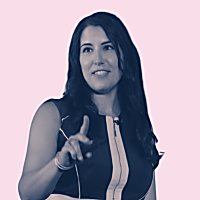
Suzanne is a product development executive focused on improving sustainability, transparency and culture through data and insight. As a Vice President in IBM’s Sustainability Software business unit, Suzanne leads a large, global team of software engineers building next generation sustainability, asset management & supply chain technologies using AI & IoT. Suzanne's organization is responsible for the architecture, development, support, and DevOps of Maximo, TRIRIGA, Envizi, Order Management, and Supply Chain and Environmental Intelligence Suites. Throughout her career, Suzanne has a track record of growing research innovations into major new product portfolios including blockchain, food safety, traceability in the supply chain, fintech developer tools, social software, audio/video collaboration, email, and messaging, ranging to $1B portfolios and including the world's largest blockchain network for transparency in the food supply chain. Suzanne has a passion for product management, user-focused solution development, and aligning design & engineering around a compelling product strategy & vision. Suzanne’s expertise includes profitability modeling, sales forecasting, enabling go to market teams, creating digital channels, market and services alignment, offering operations, and measuring product and business health. A technologist at heart, Suzanne began her career in IBM Research and has since held leadership roles in development, user experience, and product management. Suzanne has a Masters in Engineering and Management from MIT, where she continues to mentor aspiring entrepreneurs and product managers.
View Suzanne's LeadDev articles and talks
Brian Genisio shares the lessons we learned from our multi-year journey, including project planning, team management, technical challenges, testing and deployment, and post-project analysis.
At Khan Academy, we recently completed a full system rewrite, code-named "Goliath."
This daunting task took 3.5 years, replaced over one million lines of code, and required almost 50 person-years of effort to complete. We achieved this all without any downtime or significant user impact. In this presentation, we will share the lessons we learned from our multi-year journey, including project planning, team management, technical challenges, testing and deployment, and post-project analysis. Our goal is to help other engineering managers and leads successfully navigate similar projects, avoid some of our pitfalls, and achieve a successful outcome.
View speaker slides
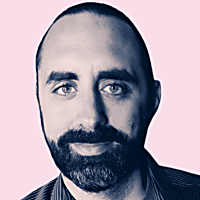
Brian Genisio is an Engineering Manager at Khan Academy with over 25 years of full-stack engineering experience. He brings a hands-on management style that combines his technical expertise with a people-first approach. Under his leadership, his team has achieved several notable accomplishments, including contributing to a successful re-write of Khan Academy’s system architecture. Brian is also an experienced speaker and has presented at several conferences and usergroups throughout his career. He has been recognized for his contributions to the tech community as a Microsoft MVP and was a co-founder of Southeast Michigan JavaScript (SEM.js), one of the largest tech meetups in Ann Arbor, MI. As a leader of SEM.js, Brian helped organize events, lead discussions on emerging technologies, and foster an inclusive community of like-minded professionals.
View Brian's LeadDev articles and talks
Scott Triglia distils his own experience learning how to lose gracefully and wisely so that he can win in the long term. He'll discuss people, technical, and organizational aspects of long-term planning.
No one likes when an important decision doesn't go their way.
As you become more senior, trying to win individual decisions at all costs can easily become more harmful than helpful.
Deciding how you lose, with an eye toward the ultimate long-term goal, can produce better outcomes, improve colleague relationships, and transform a short-term loss into a long-term gain.
You will leave this talk with knowledge on:
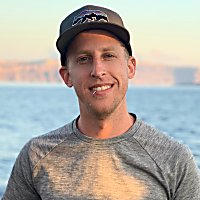
Scott Triglia is a software engineer who loves making large backend systems reliable, effective, and a pleasure to use. In the past, he worked as a staff engineer on a variety of API platforms at Yelp. Currently he is a staff engineer at Stripe, making payments infrastructure and money movement work seamlessly across the world.
View Scott's LeadDev articles and talks

